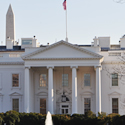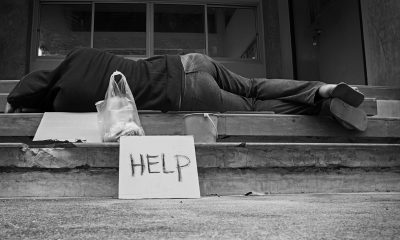National
70 groups call on Obama to endorse anti-bullying legislation
SNDA may see vote this year on Senate floor

A group of 70 organizations is asking President Obama to build on his work against bullying in schools by endorsing legislation pending in Congress that would prohibit harassment of LGBT students.
In a letter dated March 7, the groups ask Obama to endorse the Student Non-Discrimination Act, or SNDA, which would prohibit and harassment in public elementary and secondary schools based on a student’s actual or perceived LGBT status. No federal law explicitly prohibits harassment against LGBT students in school.
“SNDA would provide lesbian, gay, bisexual and transgender (“LGBT”) students with long overdue and much needed explicit federal protections against discrimination and harassment,” the letter states. “The legislation also protects students who associate with LGBT people, including students with LGBT parents and friends.”
The organizations — led by the American Civil Liberties Union — include LGBT groups such as the Human Rights Campaign, Lambda Legal and the Gay, Lesbian & Straight Education Network, or GLSEN, as well as other groups, such as the American Psychological Association, the Feminist Majority and the Southern Poverty Law Center. Religious groups, such as the Episcopal Church, the Methodist Church and the United Church of Christ also signed the letter.
Obama has said he’s committed to combatting bullying and harassment in schools, but has yet to endorse legislation that would explicitly prohibit the bullying of LGBT students.
The letter asks Obama to endorse SNDA so that it has the same level of support from the White House as other pro-LGBT bills, such as the Respect for Marriage Act, which Obama endorsed in June, or the Employment Non-Discrimination Act.
“An endorsement of the Student Non-Discrimination Act would likewise be a clarion call for equality in our schools and better protections for vulnerable children,” the letter states. “And more importantly, it would make clear to all Members of Congress what the administration views as a necessary federal legislative solution to the serious problem of anti-LGBT discrimination and harassment in our nation’s public schools.”
Groups send the letter to Obama ahead of March 10, which will mark the anniversary of the anti-bullying summit held at the White House in 2011. The event was seen as the hallmark effort of Obama’s commitment to combat bullying in schools.
Ian Thompson, the ACLU’s legislative representative, said an announcement in support of SNDA on the anniversary of the anti-bullying summit would have significant impact.
“An endorsement by the administration on the anniversary of the White House Conference on Bullying Prevention would be a powerful statement from the administration that all students are entitled to an education unhindered by discrimination and harassment,” Thompson said.
Other anti-bullying efforts the administration has undertaken include holding the first-ever federal LGBT youth summit in June and issuing guidance informing schools they may be violation of federal laws protecting students from harassment on the basis of gender by allowing anti-gay bullying. Obama, Vice President Joe Biden and other administration officials have also appeared in “It Gets Better” videos.
Just this week, the Departments of Justice and Education, together with six private plaintiffs and the Anoka-Hennepin School District in Minnesota, came to an agreement on a consent decree to resolve alleged bullying and harassment of students who weren’t conforming to gender stereotypes.
Shin Inouye, a White House spokesperson, said Obama supports the goals of the SNDA, didn’t offer full-throated support of the bill.
“Without speaking to the specifics of this letter, I would note that the President supports the goals of the Student Non-Discrimination Act,” Inouye said. “As the Elementary and Secondary Education Act is being considered by Congress, we look forward to working with lawmakers to ensure that all students are safe and healthy and can learn in environments free from discrimination, bullying and harassment.”
SNDA is sponsored by gay Rep. Jared Polis (D-Colo.) in the House and Sen. Al Franken in the Senate. The bill has 156 co-sponsors in the House and 37 co-sponsors in the Senate.
The legislation may see action on the Senate floor this year. Franken, who offered then withdrew the bill as an amendment to education reform legislation before the Senate Health, Education, Labor & Pensions Committee, said he’d offer SNDA as an amendment when the Education & Secondary Education Act reauthorization bill comes to the Senate floor. The bill is unlikely to come up as a standalone bill in the Republican-controlled House.
Obama administration officials have been repeatedly asked about whether the administration is ready to support SNDA. During a conference call with reporters Tuesday, Thomas Perez, assistant attorney general for the Justice Department’s Civil Rights Division, said in a response to a question from the Washington Blade that having law on the books like the Student Non-Discrimination Act would “certainly be helpful,” but stopped short of endorsing the bill.
“We have had conversations with various stakeholders on the Hill and spoken about that, and are carefully reviewing that particular proposal,” Perez said.
Another piece of legislation pending before Congress, the Safe Schools Improvement Act, or SSIA, also aims to protect LGBT students from bullying. The bill, sponsored by Rep. Linda Sanchez (D-Calif.) in the House and Sen Bob Casey (D-Pa.) in the Senate, would require schools to adopt anti-bullying codes of conduct and submit to states data to the Department of Education on bullying.
ACLU’s Thompson said SSIA isn’t mentioned in the letter for the sake of having a more clearly stated request to Obama.
“While SSIA and SNDA have complementary goals, the bills do different things,” Thompson said. “Many of the organizations on this letter also support SSIA, but in order to have as clear of an ‘ask’ as possible to the administration, we decided to focus this particular letter on SNDA.”
Florida
Disney’s Gay Days ‘has not been canceled’ despite political challenges
GayDays is moving forward with its planned LGBTQ meet-up

Gay Days in Orlando is preparing for its 2026 gathering though organizers have yet to release full details.
Concerns emerged about the status of the annual meetup of LGBTQ people at Walt Disney World in Orlando, Fla., after social media posts and multiple news outlets reported the event would not take place this year.
In response to inquiries from the Blade, Josh Duke, co-owner of Gay Days, clarified that an update would come this week.
“At this time, I’d like to clarify that Gay Days Orlando has not been canceled,” an email to the Blade said. “We are currently finalizing details regarding our plans for 2026 and will be making an official announcement later this week.”
Earlier this week, Gay Days posted about a pause in their plans for the annual meeting, which quickly gained traction online.
In an official statement on social media, Gay Days organizers cited several factors behind what had initially appeared to be a cancellation of their 2026 event.
“Changes to our host hotel agreement, the loss of key sponsorship support, and broader challenges currently impacting LGBTQIA+ events nationwide made it impossible to deliver the experience our community deserves,” organizers wrote. However, the statement added, “This is a pause — not an ending.”
In a longer message shared with supporters, organizers elaborated on that now-reversed decision.
“Gay Days Family — it is with very heavy hearts that we share Gay Days 2026 will not take place this year. This was an incredibly difficult decision and one that was only made after every possible option was explored.
“Gay Days has always been more than an event — it is community, family, and a place where so many memories are made. While this pause is painful, it also gives us the opportunity to step back, listen, and begin shaping a stronger and reimagined GayDays for the future. Thank you for your continued love, patience, and support. This is not goodbye — it’s a reset, and we look forward to creating the future of GayDays together.”
GayDays, which began in 1991, encourages queer Disney fans to visit the Orlando theme park while wearing red shirts to identify one another. Originally focused on gay men reclaiming the childhood joy often denied due to homophobia, the event has expanded over the years to include LGBTQ+ families on summer vacations and queer couples honeymooning in the Magic Kingdom.
Disney made history in 2019 by holding its first-ever official Pride event at its European park, Disneyland Paris. In 2023, Disneyland California hosted the first U.S. official Pride event.
Concerns about the potential cancellation had arisen amid broader challenges affecting LGBTQ events nationwide. These include changes in hotel agreements, sponsorship support, and Florida’s increasingly restrictive anti-LGBTQ policies under Gov. Ron DeSantis. Florida currently has an equality score of -3.00 out of 49 from the Movement Advancement Project, which evaluates states based on policies affecting relationship and parental recognition, nondiscrimination, religious exemptions, LGBTQ youth, healthcare, criminal justice, and transgender identity documentation.
Recent legislation in Florida has included prohibitions on hormone replacement therapy for transgender minors, restrictions on adult access to treatment, bans on drag performances for those under 18, bathroom bans for transgender people in state buildings, and expansion of the Parental Rights in Education Act, commonly called the “Don’t Say Gay” law. These measures limit public school instruction or discussion about sexual orientation and gender identity.
Gay Days Anaheim is scheduled to take place at Disneyland Resort in September.
Disney has also maintained a focus on Pride, reporting in 2022 that proceeds from Pride merchandise benefited numerous LGBTQ organizations, including GLSEN, PFLAG, The Trevor Project, Zebra Coalition, the Los Angeles LGBT Center, the LGBT Center Orange County, the San Francisco LGBT Center, and the Ali Forney Center. Pride merchandise sold internationally supports local LGBTQ organizations in those regions.
More details about this event are expected to be released on Friday.
New York
Pride flag removed from Stonewall Monument as Trump targets LGBTQ landmarks
The new NPS policy targets Pride flags amid consistent efforts from the Trump administration to minimize LGBTQ history.

A rainbow Pride flag flying at the Stonewall National Monument in New York was removed at the direction of Trump administration officials at the National Park Service, according to a source familiar with the matter who spoke to the Blade on condition of anonymity.
The source said the move had been in the works for weeks and is part of ongoing efforts by the Trump-Vance administration to erase LGBTQ identity from federally controlled landmarks.
In response to the Blade’s request for information about the new flag policy, the National Park Service provided the following statement:
“Current Department of the Interior policy provides that the National Park Service may only fly the U.S. flag, Department of the Interior flags, and the Prisoner of War/Missing in Action flag on flagpoles and public display points. The policy allows limited exceptions, permitting non-agency flags when they serve an official purpose. These include historical context or reenactments, current military branch flags, flags of federally recognized tribal nations affiliated with a park, flags at sites co-managed with other federal, state, or municipal partners, flags required for international park designations, and flags displayed under agreements with U.S. Citizenship and Immigration Services for Naturalization ceremonies.”
The statement also included official guidance on the display of non-agency flags issued by Trump-appointed National Park Service Director Jessica Bowron.
The Blade reached out to other organizations to confirm the status of the Pride flag last week, including the Stonewall National Monument Visitor Center, the NYC Landmarks Preservation Commission, and the National Parks Conservation Association. None were able to provide details about whether the flag was still flying at that time but it has since been removed.
This action aligns with other moves targeting and erasing LGBTQ history. In September, the Blade reported that three organizations originally slated to receive more than $1.25 million from the National Park Service’s Underrepresented Communities Grant Program would no longer receive funding: In Washington, D.C., the Preservation League had been awarded $75,000 to document LGBTQ+ historic resources. In Providence, R.I., the Preservation Society was slated for $74,692 to conduct an LGBTQ+ survey and prepare a National Register nomination. And in New York, the Fund for the City of New York, Inc., had been awarded $32,000 to nominate the residence of Bayard Rustin — the iconic civil rights and LGBTQ activist — as a National Historic Landmark.
Puerto Rico
Bad Bunny shares Super Bowl stage with Ricky Martin, Lady Gaga
Puerto Rican activist celebrates half time show

Bad Bunny on Sunday shared the stage with Ricky Martin and Lady Gaga at the Super Bowl halftime show in Santa Clara, Calif.
Martin came out as gay in 2010. Gaga, who headlined the 2017 Super Bowl halftime show, is bisexual. Bad Bunny has championed LGBTQ rights in his native Puerto Rico and elsewhere.
“Not only was a sophisticated political statement, but it was a celebration of who we are as Puerto Ricans,” Pedro Julio Serrano, president of the LGBTQ+ Federation of Puerto Rico, told the Washington Blade on Monday. “That includes us as LGBTQ+ people by including a ground-breaking superstar and legend, Ricky Martin singing an anti-colonial anthem and showcasing Young Miko, an up-and-coming star at La Casita. And, of course, having queer icon Lady Gaga sing salsa was the cherry on the top.”
La Casita is a house that Bad Bunny included in his residency in San Juan, the Puerto Rican capital, last year. He recreated it during the halftime show.
“His performance brought us together as Puerto Ricans, as Latin Americans, as Americans (from the Americas) and as human beings,” said Serrano. “He embraced his own words by showcasing, through his performance, that the ‘only thing more powerful than hate is love.’”
-

 Colombia4 days ago
Colombia4 days agoLGBTQ Venezuelans in Colombia uncertain about homeland’s future
-

 District of Columbia4 days ago
District of Columbia4 days agoD.C. bar Rush facing eviction on charge of failing to pay rent
-

 District of Columbia4 days ago
District of Columbia4 days agoD.C. non-profits find creative ways to aid the unhoused amid funding cuts
-

 Sports4 days ago
Sports4 days agoBlade, Pride House LA announce 2028 Olympics partnership




















